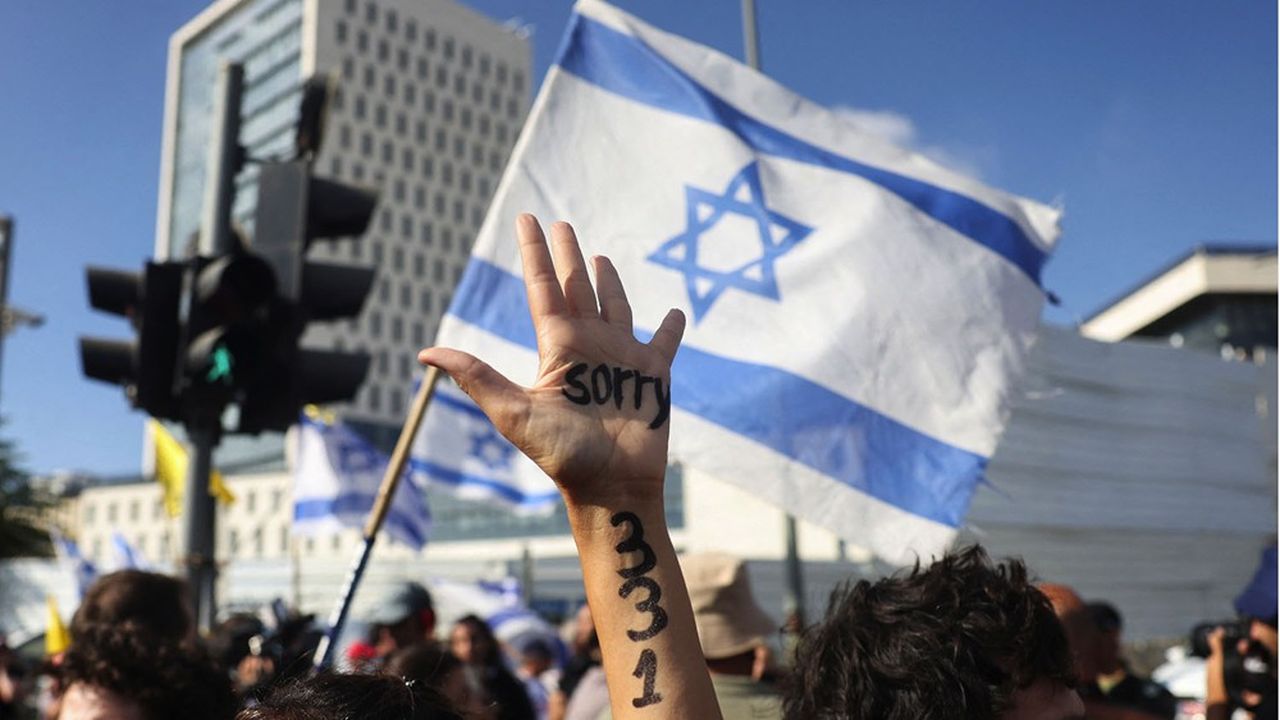
A human tragedy followed by a political crisis: Israel experienced a dark weekend. The bodies of six of the hostages kidnapped by Hamas on October 7 in southern Israel were found in a 20-meter-deep tunnel south of the Gaza Strip. They were shot in the head 48 hours ago. Among them were two women and an Israeli-American citizen Hersh Goldberg-Polin, whose parents spoke at the Democratic Party Convention in August during Kamala Harris’ inauguration. Joe Biden said he was “devastated and outraged.”
The two female hostages, and Hersh Goldberg-Polin, who was wounded in the arm, were to be among the first batch of about 30 hostages to be released under a deal the United States has proposed to Israel and Hamas. But the ongoing talks have gotten off to a rocky start. A Hamas official, Izzat al-Rishq, has tried to shirk responsibility for the killings by claiming that the six hostages were killed by Israeli air strikes.
97 hostages remaining
In Israel, this affair has triggered a political crisis between Benjamin Netanyahu and Yoav Gallant, the Minister of Defense supported by the IDF General Staff. In short: the Prime Minister hardened his positions on Friday. He had his war cabinet vote on a resolution proclaiming that the Israeli army would remain permanently deployed along the border between the south of the Gaza Strip and Egypt, to prevent arms trafficking via tunnels. However, this demand was rejected by Hamas and Egypt, boding very badly for negotiations for a ceasefire and the release of the 97 remaining hostages.
Only Yoav Gallant voted against, warning that after such a decision “there will be no agreement and no release of the hostages, the prime minister is playing with their lives.” The chief of staff, General Herzi Halevi, assured that a permanent presence of the army on the Egyptian border was not essential, stressing that Tsahal was capable of “returning at any time along the border” if necessary.
Maximum military pressure
Benjamin Netanyahu rejected this argument, and placed all the responsibility on Hamas. “Those who kill hostages do not want an agreement,” he proclaimed. According to him, only maximum military pressure on Hamas is likely to result in the release of the hostages. “At some point, Hamas will give in,” he assured.
Many commentators point out that this intransigence is also driven by “political” considerations. According to them, Benjamin Netanyahu does not want an agreement with Hamas so as not to trigger a spiral that would lead to a ceasefire, then to the establishment of an official commission of inquiry into the fiasco of October 7 when Israel was taken by surprise by Hamas commandos and, thirdly, to early elections, while the polls predict a defeat for his Likud party.
In addition, the two ministers and leaders of the extreme right-wing parties Itamar Ben-Gvir (National Security) and Bezalel Smotrich (Finance) threatened to bring down the government if Benjamin Netanyahu agreed to the slightest agreement with Hamas, which they equate in advance with a “surrender”.
Call for a general strike
It is precisely to denounce these “political” calculations that a part of civil society is revolting. Families of hostages have called for demonstrations on Sunday and for a strike to force the government’s hand. The all-powerful Histadrut trade union center has called for a general strike for the first time on Monday to support the movement in order to obtain the release of the hostages. Ben Gurion International Airport will be closed on Monday morning.
A section of the employers’ organization, grouped within the “Israel Business Forum”, which brings together 200 major companies in the country, called on “the population not to remain indifferent when the hostages could have been saved”. Municipalities, including Tel Aviv, restaurant owners and concert halls joined these protests.
To complete this bleak picture, the situation in the West Bank threatens to degenerate. Over the weekend, two attempted car bomb attacks took place in the Hebron region. The devices exploded prematurely without causing any casualties. Three policemen were shot dead near a road checkpoint by Palestinians who were driving in the area. The Israeli army continued its offensive in the city of Jenin for the fourth consecutive day, where 26 armed Palestinians were killed in exchanges of fire with soldiers, according to the army spokesman.





